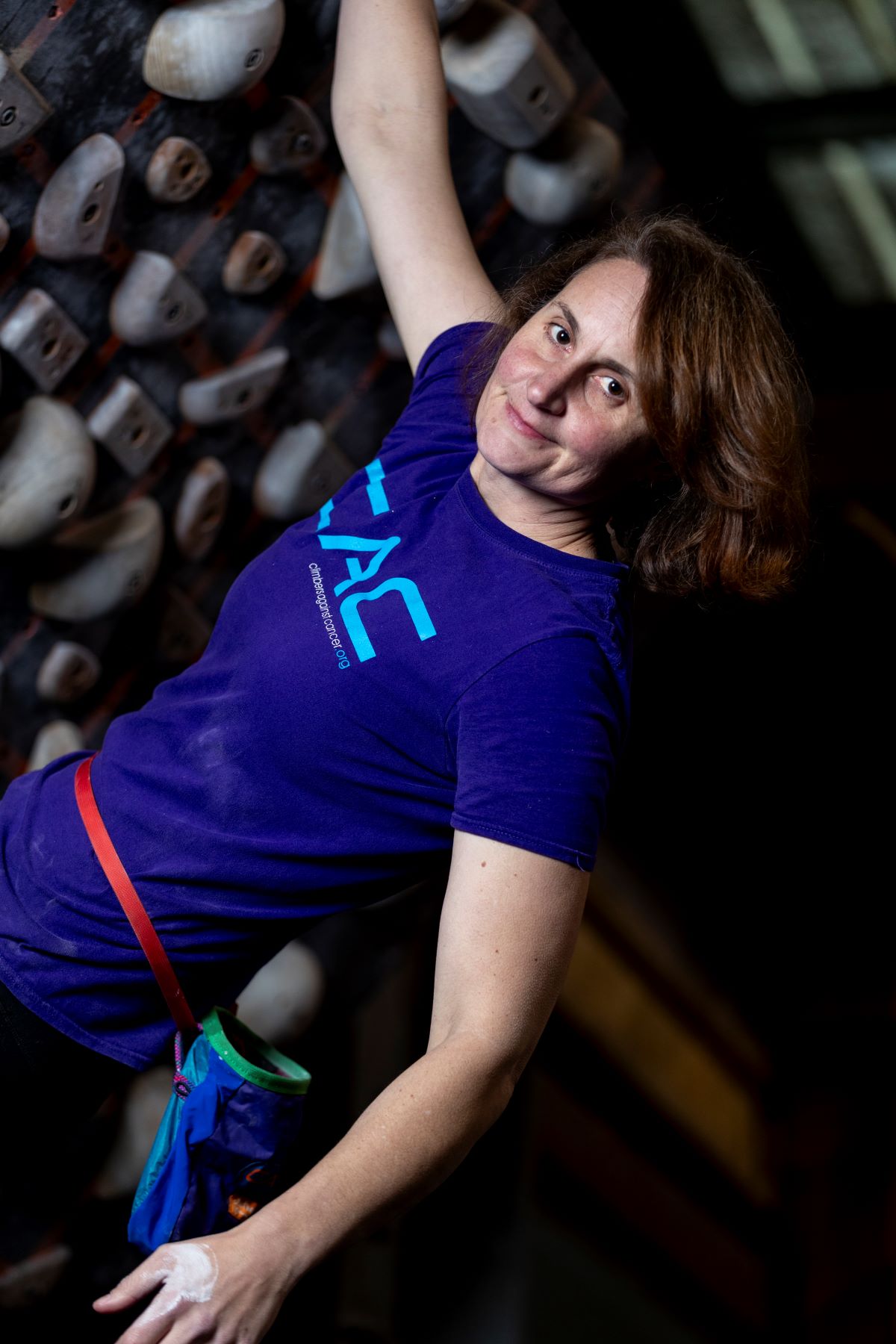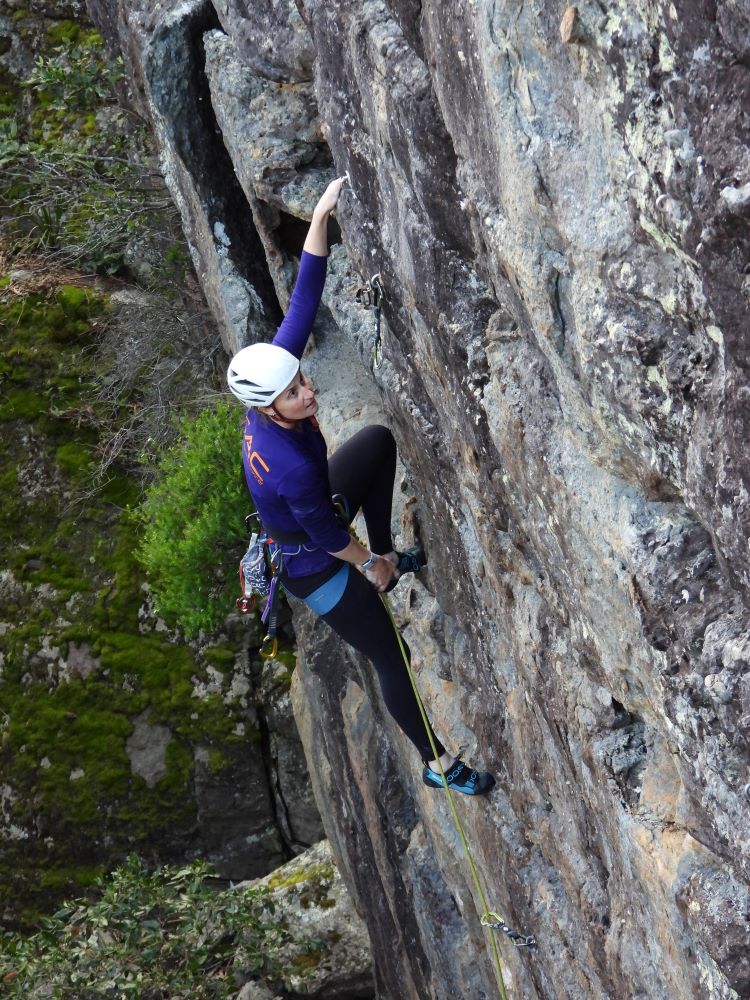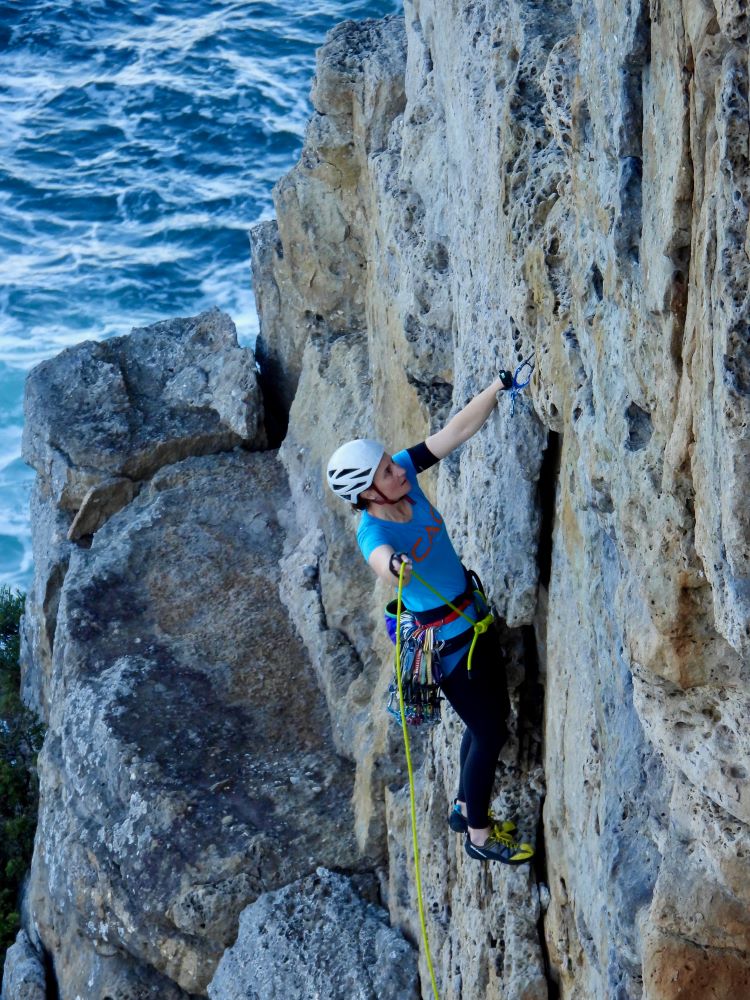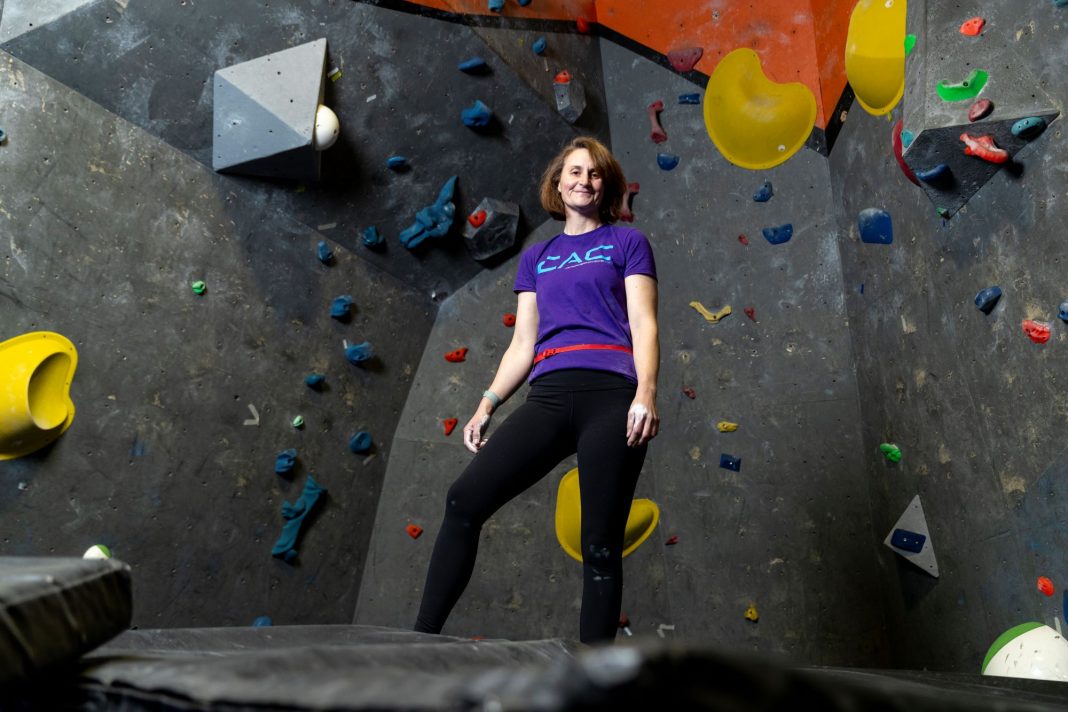Contrary to popular belief, educators do have a life outside of school. Dickson College principal Caitlin Horan, an outdoor enthusiast with a spirit of adventure, was an instrumental part in progressing competitive climbing in Australia and coached the national team for a time.
“Coaching has been an amazing part of my climb but being a principal doesn’t allow you to do everything and coaching was one of the things that had to go,” says Caitlin.
Caitlin is a cancer survivor who raises funds for research and support as an ambassador for the international charity Climbers Against Cancer (CAC). Operating on five continents, the organisation works towards a shared vision of helping cancer patients and their families. Here in Australia, the funds go to the Cancer Council.
“People have said, ‘Why wouldn’t you donate straight to the cancer council?’ For some people that’s a great option, but for others, they’re actually pretty keen to come and be part of a climbing event while also contributing to a good cause. It’s just another avenue to donate to the Cancer Council,” says Caitlin.
During her own cancer journey, the climbing enthusiast was supported by her community as she hosted a climbing event to raise money for The Leukemia Foundation. While researching this fundraiser, Caitlin came across CAC, an organisation in its early stages, founded by John Ellison, who was also fighting a cancer diagnosis and the two connected.
“We had a lot of common interests; we could share stories about adventure and also about the climbing communities that were supporting us during that time. We became friends.”

John and Caitlin grew closer as they provided each other support through treatment. Sadly, John lost his battle. Before he did, he nominated ambassadors around the world to continue his work and legacy through CAC. Now the team of passionate ambassadors and volunteers are present at as many climbing competitions and national championships as possible.
“We run challenge fundraisers. Someone might say, ‘I am going to climb 50 rock climbs this weekend, and people are going to sponsor me, and I will donate it to Climbers Against Cancer.’”
The major fundraiser is brightly coloured shirts that climbers can wear. Caitlin says it has become a bit of the “in” thing in the community. The bright colours also stand out in photos, which many of the climbers love to have.
At 28, Caitlin started to feel a bit off – she was tired, had a slight cough and bruising but explained it as training too hard or a common cold. It progressed, her hands started opening whilst she was climbing against her will and then one day she fainted. It was time to see a doctor. She was sent for blood tests, and at 6pm that night, Caitlin got a call.
“She said ‘You’ve got really progressed leukemia, you need to go to the hospital right now, I have already called emergency and they’re waiting for you,’” Caitlin says. “My white cell count was record-breaking, eight times the amount it is meant to be. Without treatment, they were saying it would have been two to three weeks before I would have been dead.”
Undergoing constant chemotherapy and chemotherapy recovery, Caitlin was confined to a hospital isolation room for the best part of a year. At the worst of it, she was unable to walk or stand unassisted.
“I couldn’t drink tap water, couldn’t keep flowers in the room because a germ might come in.”
Never really considering that she could die, things did get dire for a time. Caitlin remembers peeking out from under blankets to see her parents sitting on each side of her with silent tears streaming down her mother’s face.
“You could see them thinking ‘How long have we got?’ That is crushing to be putting your parents through that.”
It was this moment that defined Caitlin’s mission going forward. Always a charitable person, she set her sights on cancer charities, raising awareness and fundraising to help put an end to the disease.
“Anything that comes will be too late for me, but if I can stop other people having to suffer like this and their parents and family from having to watch it happen – leukemia is a young person’s disease – then that would be the legacy I would leave if things do go to the worst.”
The next year, Caitlin was in and out of hospital undergoing more chemotherapy or being admitted due to her lack of immune system. In years three and four, Caitlin still received chemotherapy as an outpatient, it was the start of recovery.
Coming up against a 23 per cent chance of long-term survival, it has been eight years since Caitlin finished treatment. She has the all-clear and each year it is more unlikely that the cancer will return.


After her cancer battle, Caitlin became laser-focused on climbing, loving it in all forms: bouldering, indoor, and outdoor, particularly the multiday climbs on the international circuit. Not just a physical feat, it is a mental game as you have to juggle problem-solving, fear management and knowing when to be aggressive or delicate.
“There’s risk mitigation and the ability to be able to identify when something is too dangerous and keeping your ego in check and pulling the pin if something is going to be too risky.”
After nearly four years of small steps, Caitlin was able to get back to hard climbs, but the impact of the time spent fighting for her life is still present.
“Things don’t grow back in the right balance and then you get all these soft tissue injuries for years afterwards. It is a long road, but I am one of the lucky ones.”
There was a goal in sight, the Mecca of the climbing circles, El Capital in Yosemite National Park. At 3,000 feet tall, the wall is a multi-day climb. Caitlin says that a lot of teams can’t successfully scale it on the first attempt and for many more, it is too daunting to even contemplate.
“I wouldn’t have either, unless I had got sick and started to think about what that sickness had to me mentally, in a positive way. What strength it had taught me, what it had shown me about my own ability to struggle, to survive, to achieve the things that I wanted to.”
A person is never more alive than when they are reaching for something just outside their grasp
Training for an entire year, Caitlin and her teammates spent four days on the wall.
“I have since climbed that wall again and others that are equally as hard but because that was the first big achievement post-cancer, that’s the one I’m proudest of. In my mind, it stamped my claim back on my capacity and my ability to trust my body and my mind.”
Caitlin’s advice for someone going through a situation like hers is to remain positive and back yourself. Whilst it is important to remain strong, it is also just as important to be vulnerable and let those around you help and support you.
“Afterwards, I would cry if I spilt the milk, I think I held on to too much. There are people there that carry that load with you. Be vulnerable, it is okay to cry.”
You can read more about Caitlin’s inspiring journey in the book More Than It Hurts.
Find out more about how you can support Climbers Against Cancer; climbersagainstcancer.org
Canberra Daily would love to hear from you about a story idea in the Canberra and surrounding region. Click here to submit a news tip.



